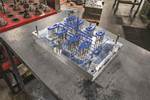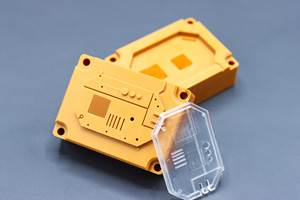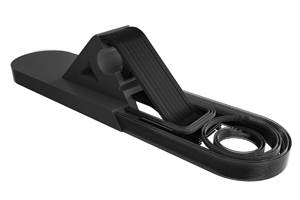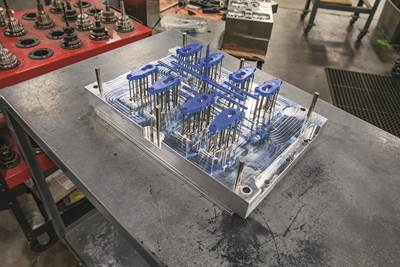Protolabs CEO Discusses the Digital Age of Manufacturing
As the company reaches its 20-year milestone, Plastics Technology talked with Protolabs CEO Vicki Holt about what’s next for the innovative company.
Protolabs recently celebrated its 20-year anniversary. Founded in 1999, the company is focused on a manufacturing model that couples digital front-end part analysis with automated tool pathing to produce custom machined components in as fast as 24 hours. The company produces custom parts and assemblies with automated 3D printing, CNC machining, sheet metal fabrication and injection molding processes.
The global digital manufacturer serves product developers across three continents and 60 countries—nearly 46,000 unique product developers in 2018 alone. Over the past 20 years, Protolabs has grown in capabilities with four flagship services and 11 manufacturing technologies, and has added capacity with more than 1 million sq. ft. of manufacturing space that houses over 1000 machines producing nearly 4 million parts each month. The company recently opened its 215,000-sq. ft. CNC machining facility in Brooklyn Park, Minn.
Plastics Technology spoke with Vicki Holt, president and CEO at Protolabs, about the growth of digital manufacturing.
“It’s been a real evolution; we haven’t stayed still over 20 years,” she says. “We’re still at the beginning of how to help companies leverage digital manufacturing.”
Digital Thread
Holt came to Protolabs five years ago, after working for years in traditional manufacturing.
“This is my first experience with a true digital manufacturer—of all the roles I’ve been in, this is the most exciting as we are right at the leading edge,” she says. “We were invented digitally and we help companies leverage the digital thread footprint.”
The company’s digital thread includes the automated design for manufacturability analysis, rigorous process controls, equipment standardization and digital inspections. By automating the entire front-end of the manufacturing process, Protolabs can produce parts in as fast as one day. This allows customers to accelerate development cycles, validate designs quicker and get to market faster.
“Speed is the most important thing with a new product—that’s more important today than ever,” Holt says. “You can’t take years to tackle a new product and then get it in the marketplace; Protolabs helps cut development times in half.”
3D Printing Services
At Protolabs, additive manufacturing is designed for functional prototypes, complex designs and production components. Protolabs has an 80,000-sq. ft. plant in Cary, N.C., that operates more than 100 3D printers utilizing five different processes for thermoset, thermoplastic and metal printing: stereolithography (SLA), PolyJet printing, selective laser sintering (SLS), the Multi Jet Fusion (MJF) process from and direct metal laser sintering (DMLS).
“3D printing brings a unique tool to the tool chest with the design flexibility,” she says. “As we talk with engineers, we want to think creatively with design and so many of them have been trained for old processes. With 3D printing, you have complete design flexibility.”
There’s no slowing down the digital transformation in manufacturing.
“If companies aren’t thinking how to leverage software information technology into finished production; they are going to fall behind because the pace of change is so great,” she says. “Most of my career has been in traditional manufacturing and in the past five years, I’ve seen the power of digitalization. People have to get started or they will get behind.”
Related Content
Make Every Shot Count: Mold Simulation Maximizes Functional Parts From Printed Tooling
If a printed tool only has a finite number of shots in it, why waste any of them on process development?
Read More3D Printed Spine Implants Made From PEEK Now in Production
Medical device manufacturer Curiteva is producing two families of spinal implants using a proprietary process for 3D printing porous polyether ether ketone (PEEK).
Read MoreAdditive Fusion Technology Optimizes Composite Structures for Demanding Applications
9T Labs continues to enhance the efficiency of its technology, which produces composite parts with intentionally oriented fibers.
Read More5 Trends in 3D Printed Injection Mold Tooling
3D printing has moved beyond conformal cooling, and is now being applied to injection molds more broadly. Observations on additively manufactured mold tooling from the Plastics Technology Expo — PTXPO 2025.
Read MoreRead Next
‘Digital Manufacturing’ Evolves from Prototyping to ‘On-Demand’ Short Runs
Protolabs has built a 大象传媒 on speed. Today its “digital manufacturing” model is accelerating from rapid prototypes and first-run production parts to “on-demand” short-run manufacturing.
Read MoreBeyond Prototypes: 8 Ways the Plastics Industry Is Using 3D Printing
Plastics processors are finding applications for 3D printing around the plant and across the supply chain. Here are 8 examples to look for at NPE2024.
Read More













